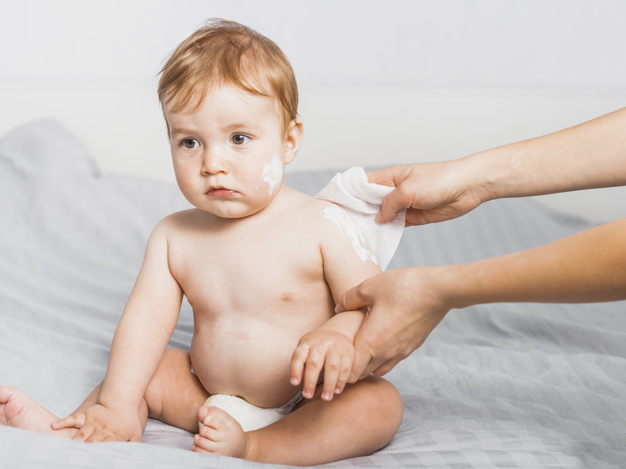The moment you hold your newborn in your arms is the most precious moment of life that you could ever capture. The little hands and the little feet will become the source of joy and energy in your life. However, with the addition of a precious life to your life comes the responsibilities in abundance.
Your infant is more susceptible to the surroundings and environment than you are. This makes the babies more exposed to the germs and bacteria roaming around in the peripheral. Thus, newborns can easily attract illness. So it becomes the responsibility of parents to protect their newborn from the concerns all around.
Keep reading to get an idea about healthy and hygienic practices that you can adopt to keep your newborn away from getting sick.
Why It Is Crucial To Pay Heed To Your Newborn’s Health
During the first four to five months of the infant’s life, their immune system is not developed entirely. They are weak from inside and can get attacked by various germs that may be harmless to you.
Even the slightest cold and flu can be life-threatening for the babies at times. Therefore, it becomes essential to pay attention to the baby’s atmosphere for the newborn’s good health.
Healthy Practices To Keep Your Infant Away From Sickness
Here is the list of a few healthy practices that you should install in your and your partner’s life to keep the little love of your life fit and fine.
1. Clean Hands Is The Key
Before you hold your baby, ensure that your hands are super clean as they are the most exposed part of your body to germs. Even if you have not stepped out of the home, make sure to use the hand sanitizer wipes before touching the newborn.
Create an obsession for washing hands or sanitizing it with hand sanitizer wipes for your baby’s wellbeing. Apart from you and your better half, make sure you encourage every person to cleanse their hands before holding your tiny baby. This will keep your baby safe from all the germs brought by visitors.
2. Vaccinations on Time
During the first few months, your newborn will not be eligible for most vaccines, but everyone around him may be fit for taking the vaccinations.
Ensure that you and your partner, along with the caretaker or other permanent members of the family, are properly immunized. Contact your doctor and ask for the vital injections that you all should get in order to protect the child.
Once the baby becomes fit for vaccinations, make sure you keep the little one up to date with all the vaccination schedules.
3. Avoid Traveling With Your Newborn
Your infant’s immune system remains weak initially, so they are at risk of acquiring infections from the crowd. This is the reason why many pediatricians suggest you avoid visiting crowded and congested places with your baby.
If it is essential and unavoidable to travel, make sure you leave your baby with a caretaker at your home. If it is necessary to take your infant out to places like doctor’s clinic, make sure you have bulk baby wipes for cleaning your baby’s hands or feet every time it touches something out there.
4. Breastfeed If Possible For You
Breast milk is jam-packed with white blood cells, antibodies, and healthy enzymes that flourish your baby’s immune system. It also enhances the infant’s internal organs and keeps the harmful bacteria away. Therefore, feeding your newborn with breast milk is the best option. This will keep the tiny baby away from all the diseases and sicknesses.
However, we understand that breastfeeding is not a suitable option for many women. So you should consult your pediatrician about the milk formula that suits your newborn’s immune.
5. Keep The Home Tidy And Germ-Free
Keeping the baby’s surrounding hygienic and sterilized is vital for its health. So you will have to keep your home clean and tidy. Make sure you use an anti-bacterial disinfectant for cleaning your domicile.
Ensure that the clothes you use for your baby or even those you wear are appropriately sanitized. If your home has visitors like caretakers, tell them to take off their shoes at the entrance as shoes can carry pollutants inside the house.
Endnotes
Babies are also humans, and thus, they will get sick at times, like every other human being on this earth. So do not worry about maintaining an all sanitized and aseptic environment for always. You only have to take extra care of the infant in the first few months as they are new to the outer world.
Make sure you purchase bulk baby wipes and hand sanitizer wipes to keep your hands and baby’s surroundings clean and germ-free. Small healthy habits like taking off shoes at the entrance, washing hands, or vaccinating on time can keep your infant away from getting sick.
The more precautions you take at the beginning, the more healthy your baby will become with time.


